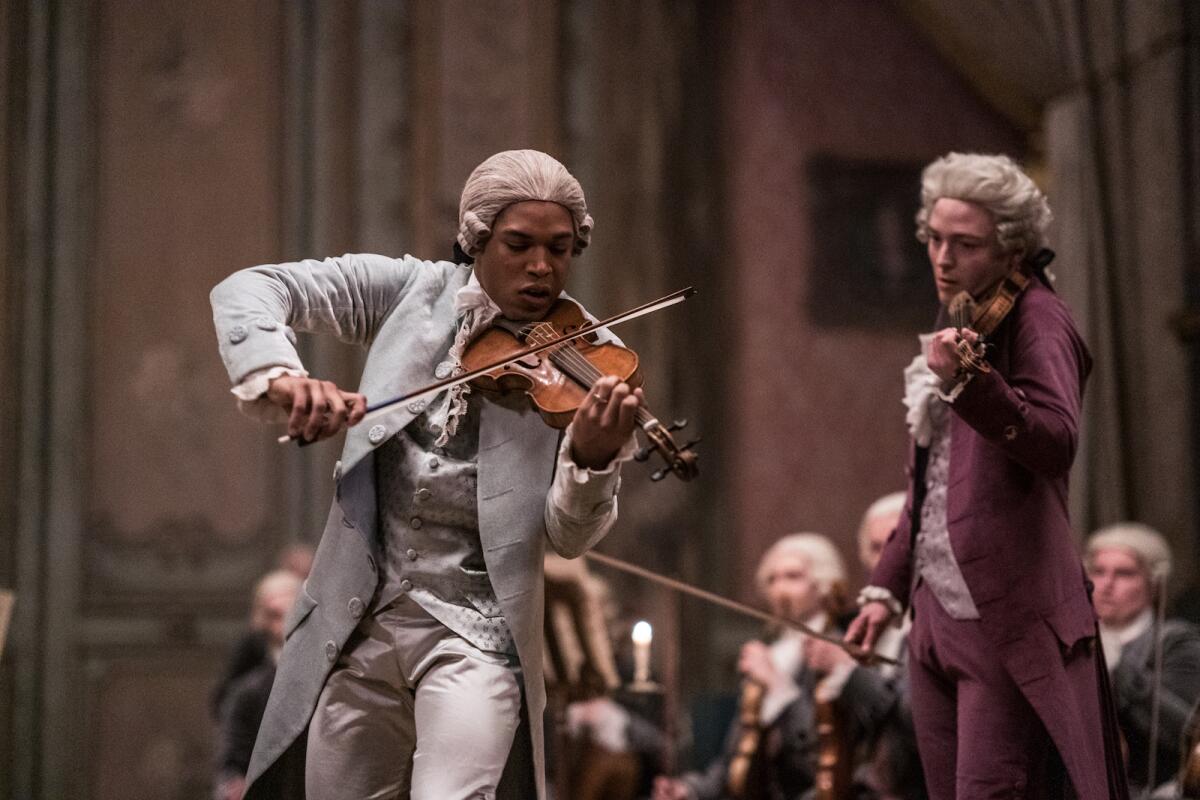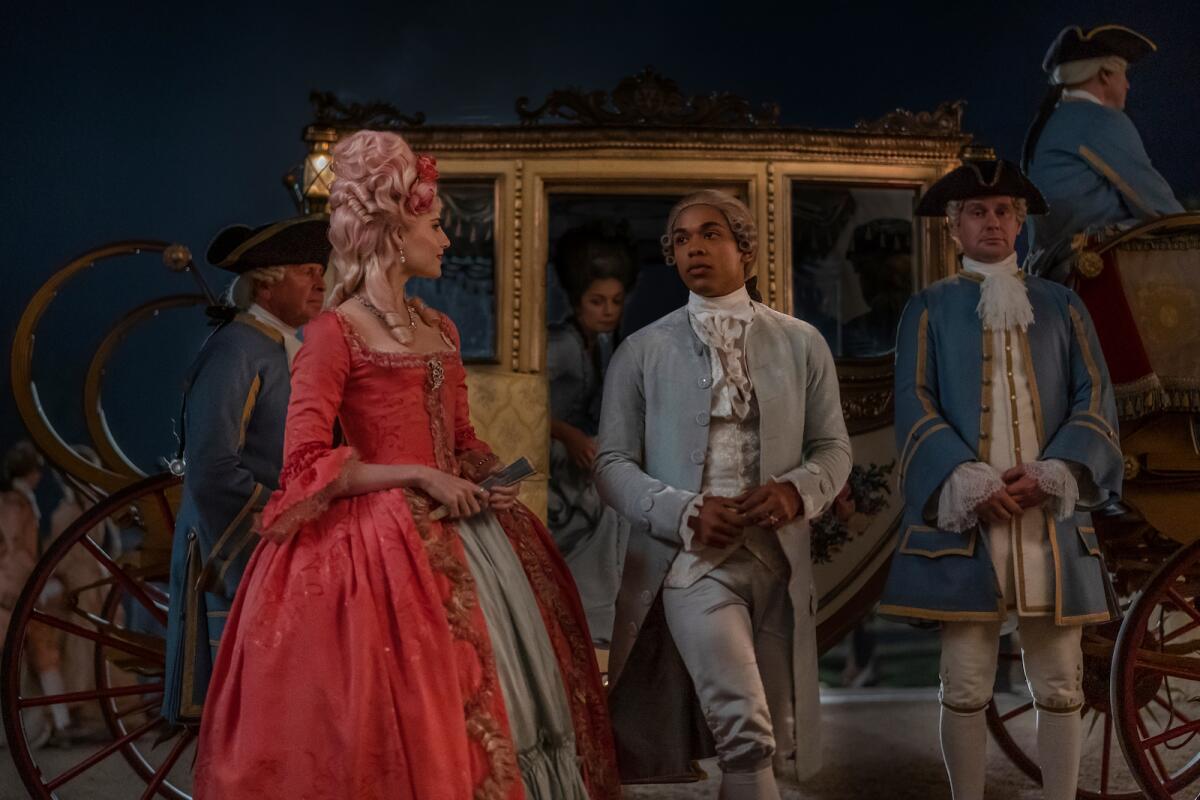Review: ‘Chevalier’ opts for shallow and tawdry, diminishing the radical spirit of its subject

It’s a striking image — a young Black man dressed in a waistcoat and silk breeches, his hair braided in cornrows, holds a violin, the bow slung over his shoulder, with the title “chevalier” emblazoned below his feet. This movie poster almost looks like a Kehinde Wiley portrait, a radical reassertion of tradition, a disruption of the narrative we’ve been sold. This is a story that’s been crushed under the brutal wheel of history, war and racism, and the film, “Chevalier,” about the 18th century French composer and violinist Joseph Bologne, Chevalier de Saint-Georges, promises to unfurl this lost story in modern, exciting fashion.
The talented Kelvin Harrison Jr. plays Bologne, a role seemingly tailor-made for the actor and musician raised in New Orleans. Bologne, the son of a French plantation owner and a young Senegalese enslaved woman, was born on the Caribbean archipelago of Guadeloupe and educated in France. He was a talented musician, composer and fencer, forged high-profile friendships with Queen Marie Antoinette and Phillipe Egalite, Duke of Orléans, and fought in the French Revolution.
It’s quite a life, but the script by Stefani Robinson only cherry-picks the tawdriest bits from his Wikipedia entry for this biopic. Directed by Stephen Williams with a sense of momentum and fluidity, it’s hard to shake the feeling that this version of Bologne’s life story glides over the most interesting parts. His Caribbean childhood and education in a French music school are seen in only a few frames of montage; his leadership of the only legion of fighters in the French Revolution to include people of color is described in text at the end. Rather, the focus of “Chevalier” is on his complicated relationships with Marie Antoinette (Lucy Boynton), who granted him the title of “chevalier,” his affair with married singer Marie-Josephine (Samara Weaving), and subsequent ejection from the Paris Opera led by spurned diva La Guimard (Minnie Driver).
Robinson has chosen to frame Joseph Bologne in relation to the white women who loved and left him, and whose access to power shaped the trajectory of his creative life. It’s a somewhat fascinating, if unexplored, subtext of a film that leaves its other themes on the surface of the rather trite and predictable screenplay.

Unfortunately, it’s Joseph himself who is tragically underwritten, leaving Harrison with not enough material to form the kind of performance of which he is capable. We see his competitive streak, especially in a blazing opening sequence in which he challenges Wolfgang Amadeus Mozart to a violin duel, and later, in a fencing match that’s a fight for racial equality, as explicated by his pal Philippe (Alex Fitzalan). This competitiveness is a byproduct of his perfectionism, necessitated by his father’s instruction to be “excellent,” and his desire to be accepted in the highest, whitest echelons of French society, a goal he later abandons. But we rarely see how that competitiveness might offer a more complex and challenging side to his personality. When he’s not writing music, Joseph is merely battered about by the whims of those around him, leaving Harrison with not much else to do but react.
It’s unclear exactly what kind of movie “Chevalier” wants to be. It flirts with being a contemporary pop retelling of Joseph Bologne’s life story, in the style of Sofia Coppola’s “Marie Antoinette” — Weaving’s performance is jarringly modern — but it also seems to want to be a true period piece that asserts the presence of Black people, and Black artists, in history, too often erased and whitewashed in films of this kind. But the noncommittal tone saps authenticity from the film, and Harrison is left floundering to put together a compelling performance from an uncomplicated character. Telling the story of Joseph Bologne, Chevalier de Saint-Georges, is a crucial and necessary corrective to the historical record and our understanding of this time period. But “Chevalier” the film fails to express the radical spirit that it seemed to promise.
Walsh is a Tribune News Service film critic.
‘Chevalier’
Rated: PG-13, for thematic content, some strong language, suggestive material and violence
Running time: 1 hour, 47 minutes
Playing: Starts April 21 in general release
More to Read
Only good movies
Get the Indie Focus newsletter, Mark Olsen's weekly guide to the world of cinema.
You may occasionally receive promotional content from the Los Angeles Times.










